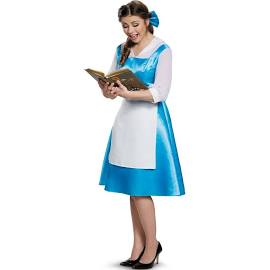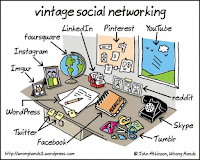Diving into Disney: Perceptions of the Perfect, Pretty Princess

Growing up in the 1990s, it was inevitable that I watched the Disney movies and related Disney shows. There were even the biweekly trips to the Disney Store in the local mall, a quick fifteen minute drive from my childhood home (though, I must admit, we went mainly because my younger sister insisted on it). While I did enjoy the trips to the store and the movies, I constantly remember my aggravation that they never had "the right Belle costume" (her blue one, basket in tow with a book in her other hand) or that they "only had Sleeping Beauty's costume--who wants to be the sleeping princess? That's boring." As I continued to watch the Disney movies, I remember being happy when the princess wound up with the prince, but I also remember asking my mother, "What else does she get? Is that really it? Where are her books? Her friends? Who cares about the prince--he didn't even say anything smart!" (In case you couldn't tell, Beauty and the Beast was the first Disney movie I watched, and therefore set me up to question all the other princesses.)

I learned a lot from my mother, who openly had conversations with me about the princesses and other characters in the movies, and I think this had a lot to do with my reasoning behind the way I was. She never stopped me from dressing up as Belle, but she did offer encourage me to be able to answer why I wanted to dress up or "be Belle" when I would play after-school with my sister and friends. There were even times when she would dislike a character, Esmeralda from Hunchback of Notre Dame or Meg from Hercules* (not princesses, I know; still valid), but I would spend every ounce of energy I had trying to convince her to like that female character based on their attitudes, wit and personalities. (I didn't succeed...oh well.) At the time, I did not understand the larger context she was associating this all with, but she was forcing me to think for myself, even from a young age. (Thanks, Madre!)
Yet, somehow, the subliminal messages sprinkled throughout all the Disney movies, that "secret education delivered by children's books and movies"(Christensen 189), still managed to pervade my mind. Initially, I was under the impression that princesses were well-read, intelligent, selfless, and challenged the man in the household, but as I continued to mature and analyze the world around me, I saw less and less examples of that in my real life. Instead, I experienced many females--young and old alike-- falling victim to the notion that "happiness means getting a man, and transformation from wretched conditions can be achieved through consumption" (Christensen 196). The way we (women) are manipulated into believing these ideas to be inherently true is not solely in Disney; we see it in all sorts of media: magazines, TV shows, music videos, among many others. Media, especially Disney (until recently), has painted women's roles as ones that "lack the cleverness and depth of their male counterparts. Instead they are laced with helplessness and ignorance" (Johnson 202).
That was why Frozen was so refreshing, the first and the fifth time I watched it. The two female leads were both dynamic in their own ways; they challenged the conventions and notions of how a princess and a female should be. Anna and Else challenged society to accept that there is more than one type of love and that romantic love is not the determining factor in your happiness. I would challenge Lila Johnson when she states that she doesn't "need to rely on characters to learn about real people" (202). I think these characters can tell us a lot about ourselves and what we perceive is correct and accepted by dominant ideologies in our society. Studying the characters and plot in movies such as Frozen can give way to compelling conversations that force us to evaluate which messages we are internalizing and then carrying out into the world. Because regardless if we want to accept it or not, we all have an idea of how someone "should" be...and those beliefs are largely derived from the messages media sends us.
 |
| Let's face it, people--as progressive as we are, we still get asked. |
*Here is an article from Her Campus that lightly and jokingly says the things that Hercules the movie teaches us. Pay attention to how Meg appears in almost all of the reasons ;)


"Instead, I experienced many females--young and old alike-- falling victim to the notion that "happiness means getting a man, and transformation from wretched conditions can be achieved through consumption" (Christensen 196)." ....Its weird because from a guys perspective, i think ive gotten a lot of the same. Happiness means finding a woman who puts up with me. I use that language intentionally because thats the message men get. Woman gotta put up with you instead of collectively looking out for each other. And that looks different for different people
ReplyDeleteWow - Yovanny's comment really gave me a new lens! As a woman, I hadn't taken the time to think about the message going out to men, but he's exactly right. Thanks for the wake-up on shifting my narrow perspective.
ReplyDelete